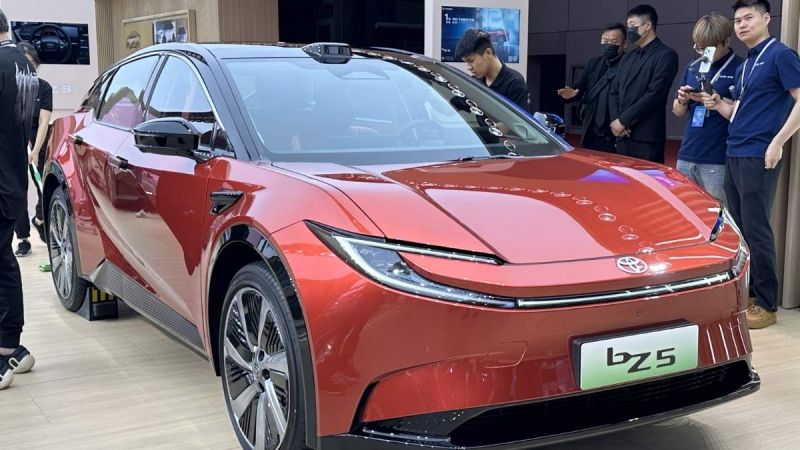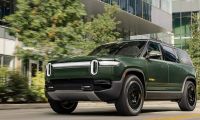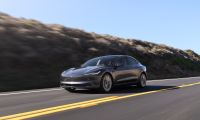The automotive world is in the midst of a seismic shift, powered by the rise of electric vehicles. While legacy automakers scramble to catch up with the likes of Tesla, a new force has emerged from China: BYD. The Shenzhen-based giant has not only conquered its domestic market but is now setting its sights globally, often undercutting established players with remarkably competitive pricing. This is a reality that Toyota, a company synonymous with efficient manufacturing, is acutely aware of. Their answer, in part, is the Toyota bZ5, an electric crossover produced in China through a joint venture with none other than BYD. This strategic partnership is not just about building a car; it's about Toyota taking a masterclass in EV economics from one of the best in the business.
The Toyota bZ5, recently available for pre-order in China, boasts a starting price of around 130,000 RMB, which translates to a mere $18,000 USD. This aggressive pricing immediately puts it in direct competition with a vast array of Chinese domestic EVs, many of which are also priced very competitively. For context, this price point is roughly equivalent to that of a gasoline-powered Toyota Corolla Cross in China. When compared to Tesla's offerings in the same market, the bZ5's value proposition becomes even starker. A Tesla Model Y, for instance, starts at approximately 263,500 RMB ($36,500 USD) in China, making the Toyota bZ5 almost half the price. This isn't just a minor difference; it represents a fundamental gap in how these vehicles are brought to market.
Understanding BYD's Cost Advantage
Toyota's collaboration with BYD on the bZ5 is no accident. BYD has managed to achieve a significant cost advantage over most Western automakers through a combination of factors. These include China's vast and well-established supply chain network for EV components, significantly lower labor costs, and substantial government subsidies and incentives that support the rapid expansion of the domestic EV industry. Furthermore, BYD's massive production scale allows for impressive economies of scale, spreading fixed costs across a larger number of vehicles. This enables them to offer high-quality EVs at prices often 20 to 30 percent lower than their European and American counterparts. By partnering with BYD, Toyota gains invaluable insight into these operational efficiencies and cost-saving measures.
Toyota's History of Learning and Adaptation
This isn't the first time Toyota has looked externally to learn and adapt. After the Second World War, Japanese automakers, including a fledgling Toyota, studied the manufacturing processes of US carmakers extensively. This learning period was crucial in the development of the famed Toyota Production System, which revolutionized automotive manufacturing worldwide. Now, decades later, Toyota finds itself in a similar position, looking to a new leader in automotive innovation – this time in the realm of electric vehicles. The bZ5 project can be seen as a crucial step in Toyota's own "teaching itself" how to build cars differently for the electric era, much like their post-war learning from the US. While Toyota has stated its intention to differentiate its offerings from BYD, the core learning in terms of cost-effective production will undoubtedly shape their future EV strategy.
Lamenting the bZ5's Absence in the US Market
Sadly for American consumers, the Toyota bZ5 is currently slated as a China-only model. This is a significant disappointment because a vehicle with this combination of Toyota's reputation for reliability and BYD's cost-effective EV technology would likely be a major success in the US market. Without the burden of substantial tariffs on Chinese-made vehicles, the bZ5 could potentially disrupt the US EV landscape, offering a compellingly priced alternative to existing options. Currently, tariffs significantly inflate the price of imported Chinese vehicles, making it difficult for them to compete directly on price with domestically produced or vehicles from other regions. If these trade barriers were not in place, a vehicle like the Toyota bZ5 could finally make a significant dent in Tesla's dominance and accelerate EV adoption across a wider range of consumers.
Wrapping Up
The Toyota bZ5, born from a strategic partnership with BYD, represents more than just a new electric crossover. It's a crucial learning opportunity for Toyota, a chance to understand the intricacies of BYD's cost-effective EV production that allows them to undersell much of the competition. The bZ5's aggressive pricing in China, significantly lower than comparable Tesla models, highlights the stark realities of the current EV market. While it's a shame that this potentially game-changing vehicle is currently limited to the Chinese market, its existence underscores Toyota's commitment to adapting and learning in the face of a rapidly transforming automotive industry. Were it available in the US without the barrier of tariffs, the Toyota bZ5 could very well be the affordable and reliable EV many American consumers are waiting for.
Disclosure: Image care of Wikipedia
Rob Enderle is a technology analyst at Torque News who covers automotive technology and battery developments. You can learn more about Rob on Wikipedia and follow his articles on Forbes, X, and LinkedIn.
The conceptual Fiat TRIS, a small and affordable electric vehicle, offers an innovative solution for last-mile delivery in dense urban areas and presents a potential steppingstone towards integrated drone delivery networks.











